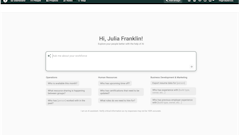Recently, a contractor told me he did not need a drug/alcohol policy because everyone knows that you get fired for using on the job. While that is certainly true in most cases, that is simply not enough to protect you.
Picture this: One of your foremen has been bringing a thermos filled with vodka and cranberry juice to work everyday. Some days he drinks bottled water, but some days he drains the thermos bottle. Worse, on most days, he drives one of your pickup trucks on various work-related errands. If he has an accident while impaired, you are almost certainly going to be liable for any damages he causes. Sure, you might have liability insurance (you better!!) to protect you the first time, but your coverage will probably be canceled or much more expensive after the first claim. Although a drug and alcohol policy may not prevent this scenario, it may get your company ”off the hook” if you show that the foreman was acting outside the scope of his employment, and a well-written policy makes that clear.
Drug and alcohol policies have become more and more common over the last couple of decades, but too many contractors either don’t have one or don’t have a well-written one. This is a huge mistake. Even if you already have a policy, you should check it to make sure it is current and well-drafted. Here are some common problems.
Possession vs. impairment
The drug and alcohol policy says that employees cannot possess illegal drugs or alcohol at work. This language causes problems for several reasons.
First, and perhaps most important, it is not possession that you are trying to prohibit. Instead, it is impairment. Your policy should prohibit employees from being “under the influence” of drugs or alcohol while at work or on the job or on the way to or from work.
Second, in some states possession is permitted, although you can probably prohibit possession at work or on a job site and maybe even in a vehicle parked in your lot. Note that some states are decriminalizing some drugs like marijuana. As a result someone who has pot in their truck may not possess “illegal” drugs. Moreover, alcohol is not by itself illegal, so our foreman with the lunchtime vodka cranberry cocktail is not violating the policy language as written.
Third, the meaning of “work” is unclear. Does that mean your office, in your truck, on a jobsite, on the way to or from work, only while holding a hammer, or on a lunch break? All of these are possible interpretations, which means the language is ambiguous.
Fourth, like the problem with marijuana and alcohol, the policy language does not apply to legal drugs. For example, the worker who stops at the convenience store on the way to the yard or a job and downs four bottles of cough syrup is probably going to be impaired — but cough syrup is not illegal. Your policy should prohibit impairment by virtue of any substance whether legal or illegal.
Finally, this language does not by itself give you the right to test the worker or spell out consequences.
When should you test for impairment?
You should reserve the right to test a worker for impairment under at least five circumstances:
1. Post-accident/injury
2. Reasonable suspicion
3. Pre-hire
4. Return from leave for medical reasons
5. Random
Many policies omit reason number four, but it often is a common impairment situation. Well-meaning employees want to get back to work after an injury as soon as possible, but that may mean they are still under the influence of medications they took while out on leave. At the least, you should test for impairment and consider sending the worker to your occupational medicine clinic for a fitness for duty exam. Some employers resist random drug testing because they incorrectly believe that it violates the worker’s rights. It does, but that is not generally illegal unless you are a government employer. A random testing policy is the best way to “catch” someone who was clean for a couple of days before pre-hire testing and gamed the system to get the job.
If you decide to implement or re-issue a revised drug/alcohol policy, I suggest you volunteer to be the first person tested. That way, it is clear to everyone that the company takes the policy seriously, from the top down. Pretty soon, the word will get out that persons abusing drugs or alcohol should find somewhere else to work.




















